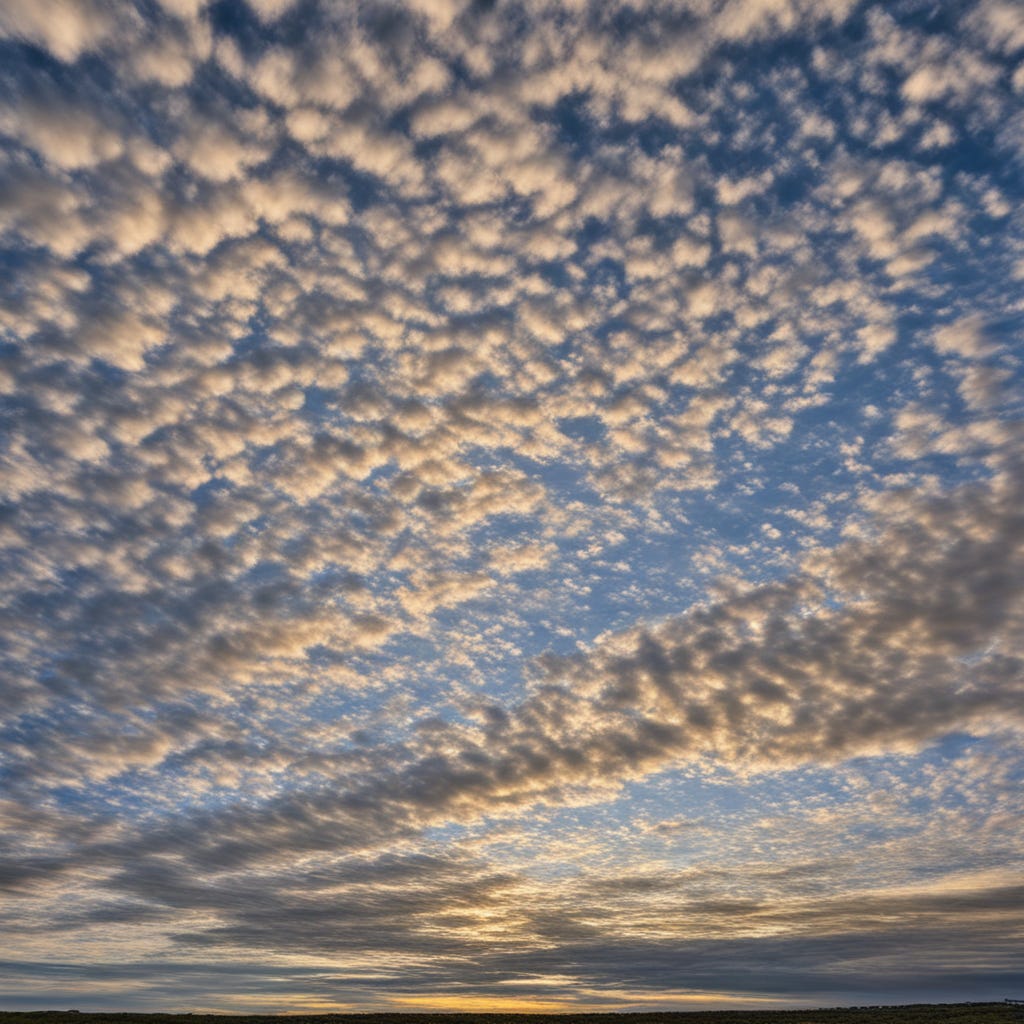On a Mackerel Sky
Picking apart why I love that phrase in Du Maurier's Rebecca
I looked up at the sky. It had changed already, a mackerel sky. Little clouds scurrying in formation, line upon line.
Rebecca
Daphne Du Maurier
I had the pleasure this summer of re-reading Du Maurier's Rebecca for a project by a student of mine. I love re-reading classics like this. When I have to really read a text (by which I mean reading it for an analytical purpose, not just for fun), I invariably find myself noticing things that passed me by the first time. It's one of the wonders of literature that the text can keep on giving every time. Stories don't get exhausted: the more we read, the more we get from them. They grow as we grow and so there is always something new we uncover on re-reading. And the greatest texts are often those we find most rewarding on re-reading.
Rebecca is one of those milestone texts that at any stage on your reading journey gives you the shivers. That opening chapter is one of the all time most spectacular introductions to any setting ever written. The power of Manderley washes over you like water. It's so potent, you could drown in it.
So what makes it so damn good? For me, it's the lies it tells. Take these two words: "mackerel sky". Mackerel. And the sky. Who would dare to connect fish with the vast expanse of the clouds? The sky and the sea feel as different as up and down.
By transporting the scales of the fish to the heavens above, Du Maurier creates something so much more vivid precisely because those two things do NOT belong together. They clash. The ideas from one grind against the other and that conflict is the very thing that sparks the imagination so powerfully. The mind is forced to mix oil and water and rather than clouding the imagination it ignites it into vivid clarity. We see the scales of the sky and we understand precisely the pattern of the clouds the character is meant to be seeing.
And on a second reading, the phrase is even more potent. The fish is above us. We are below, sunk in the depths of the ocean. It's a perfect place to begin our encounter with the drowned Rachel. But the heart of its quality comes from the fact that Du Maurier uses something entirely unconnected with her subject to describe it.
New meanings emerge when we put things together that barely seem to belong. Let’s make some up now. Tree branches compared to television aerials makes me think about messages in the treetops or the encroaching presence of the mechanised world on mother nature; cotton candy compared to stone makes me consider the damage of the sugar to delicate teeth and I see bleeding mouths and gums; a loving gesture compared to stealing evokes the compromises of love - how it can take as much as it gives and how transactional attitudes to relationships can rot away at their core. But what I find really interesting is that all of those meanings are unintentional. I wrote the clashing comparisons before I considered what they might mean. I didn't know where they were going, I just put the ideas together. The meaning of them emerged after they were written.
I had to write them first before I knew what they meant.
It's the discovery of meaning like this that I find most attractive in writing. Even when we are the writer, we often discover what we are writing only after we have written it. It doesn't matter how much you might plan the overall story, there are still times when you discover something new in your work like this and, more often than not, that's where the life is.
I have no idea how long it took for Du Maurier to come up with her mackerel sky. Maybe it was something she mulled over for weeks before putting it down. Maybe it was something that evolved over time, gradually refining until it reached this level of genius and simplicity. But there is a part of me that really hopes Du Maurier discovered it unexpectedly; that she was surprised when she put these two things together that should never belong together and she saw the potential in it and trusted herself enough to just let it run.
Ollie Francis is a fiction writer and teacher in Sheffield, UK.
You can listen to his short stories on the BadFiction podcast.
Subscribe to the newsletter to keep up to date with his long-form eco-fantasy novel ‘Kingdom’.


